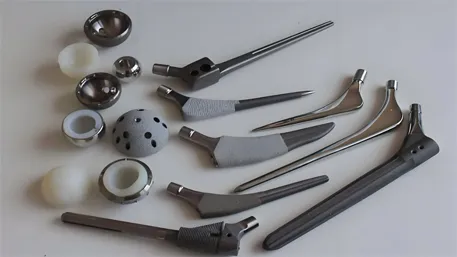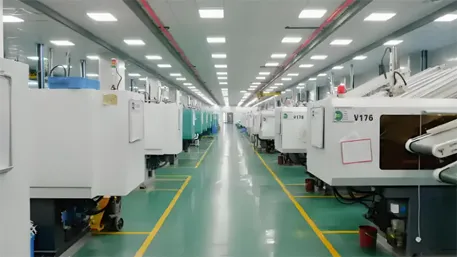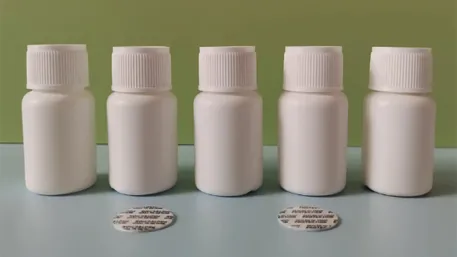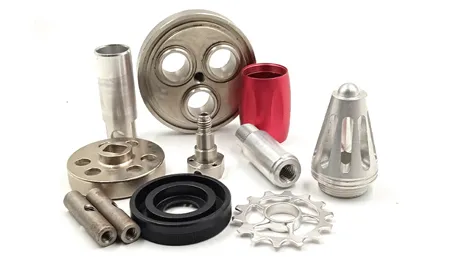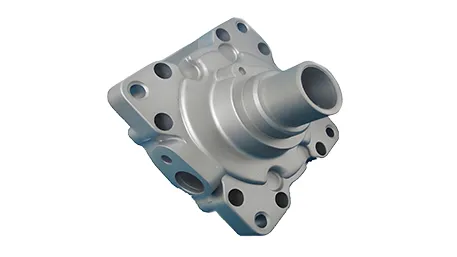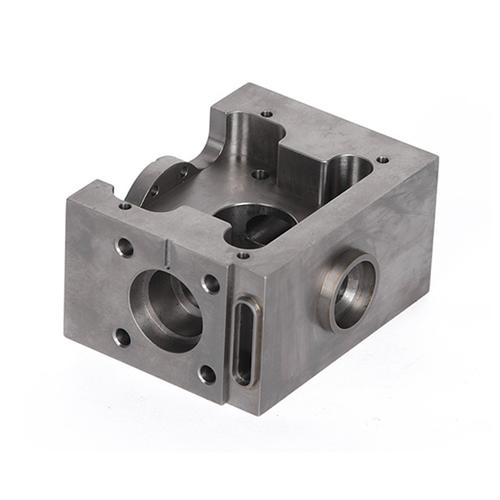Driven by consumption upgrading and personalized demands, custom injection – molded parts for daily necessities, with their low cost, high plasticity, and diverse functions, have become an important part of home, office, entertainment, and other scenarios. This article systematically analyzes the technical logic and industry value of custom injection – molded parts for daily necessities from aspects such as material selection, process technology, application scenarios, and quality control, providing professional decision – making references for brands and manufacturers.
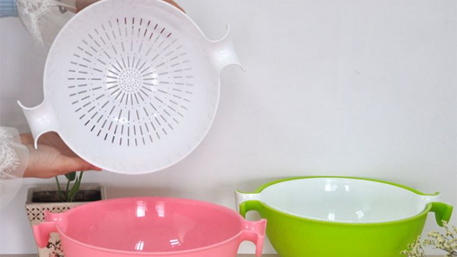
I. Material Engineering: Balancing Safety, Cost, and Performance
Materials for custom injection – molded parts for daily necessities need to consider practicality, safety, and processing costs. The following are the key characteristics and typical applications of commonly used materials:
Polypropylene (PP)
Characteristics: Non – toxic, odorless, resistant to acids and alkalis, high – temperature resistant (can be sterilized with boiling water), density of 0.9 g/cm³, and low cost.
Applications: Kitchen and household items such as lunch boxes, plastic bowls, and storage boxes, due to its corrosion resistance and lightweight advantages.
Polyethylene (PE)
Characteristics: Good flexibility, low – temperature resistant (- 40℃), impact – resistant, and high chemical stability.
Applications: Plastic bags, plastic bottles, and children’s toys, suitable for scenarios that require elasticity and durability.
Acrylonitrile – Butadiene – Styrene Copolymer (ABS)
Characteristics: High strength, impact – resistant, surface can be electroplated or painted, with excellent comprehensive performance.
Applications: Electrical appliance casings (such as hair dryers, humidifiers), furniture accessories, meeting aesthetic and functional requirements.
Polystyrene (PS)
Characteristics: High transparency (light transmittance > 88%), brittle but low – cost, and easy to form.
Applications: Disposable tableware, transparent storage boxes, toy models, suitable for scenarios with high requirements for transparency.
Polyoxymethylene (POM)
Characteristics: Good wear resistance, strong rigidity, mechanical properties similar to metals, and fatigue – resistant.
Applications: Faucet valve cores, gears, precision fasteners, suitable for daily necessities that require high durability.
Biobased Plastics (such as PLA)
Characteristics: Degradable, environmentally friendly and low – carbon, with mechanical properties similar to traditional plastics.
Applications: Eco – friendly tableware, degradable packaging bags, responding to the trend of green consumption.
Through precise material selection, custom injection – molded parts can achieve a cost reduction of 20% – 30% while meeting requirements such as food – contact safety (e.g., PP complies with FDA certification) and durability (e.g., POM has a fatigue life of 10⁶ cycles).
II. Process Technology: The Integration of Precision Manufacturing and Diverse Designs
Core Injection – molding Technologies
Mold Flow Analysis: Using software like Moldflow to simulate melt flow, optimize gate positions and cooling systems, controlling the warpage deformation of plastic parts within 0.1 mm/m to improve dimensional accuracy.
Mold Design: Increasing production efficiency through multi – cavity molds (such as a 16 – cavity mold), and using mechanisms like sliders and lifters for complex structures to achieve the molding of irregular parts (such as storage boxes with handles).
Surface Treatment and Functional Integration
Printing and Coating: Adding patterns, logos, or anti – slip textures to the surface of plastic parts through silk – screening, hot stamping, UV printing, etc., enhancing aesthetics and practicality.
Secondary Molding Technologies: Such as two – shot injection molding (2K injection molding), adding multi – color effects to daily necessities (such as kitchen utensils with colored handles).
Insert Injection Molding: Embedding metal or electronic components into plastic parts to achieve functional integration (such as plastic night lights with LED lights).
Application of Special Processes
Thin – wall Injection Molding: Reducing the wall thickness to less than 0.8 mm, achieving a weight reduction of 15% – 20%, suitable for low – cost products like disposable tableware.
Micro – injection Molding: Enabling the production of precision micro – plastic parts (such as watch strap buckles, small gears), with dimensional tolerances controlled within ±0.01 mm.
III. Application Scenarios: Customized Solutions for All Categories of Daily Necessities
Home Storage
Storage Boxes / Containers: Injection – molded from PP or PS, with customizable partition designs, transparent windows, or snap – on seals to improve space utilization.
Hangers: Injection – molded from PE or ABS, with anti – slip textures or foldable structures achieved through mold design to save storage space.
Kitchen and Dining
Lunch Boxes: Made of PP, equipped with silicone sealing rings and stackable designs to ensure tightness and save refrigerator space.
Tableware: Injection – molded from PS or PLA, with customizable cartoon shapes or antibacterial coatings to meet the safety and fun requirements of children’s tableware.
Personal Care
Combs / Toothbrushes: Injection – molded from ABS or POM, with ergonomic handles and fine teeth achieved through mold design to improve the comfort of use.
Bathroom Accessories: Injection – molded from PP or PE, such as soap holders, bath ball nets, resistant to humid environments and easy to clean.
Toys and Stationery & Sports Goods
Building Blocks / Puzzles: Injection – molded from ABS or PS, with dimensional accuracy controlled within ±0.05 mm to ensure tight splicing, suitable for children’s educational toys.
Sports Equipment Accessories: POM – injection – molded gears and bearings, wear – resistant and quiet, used in treadmills, fitness equipment, etc.
IV. Quality Control: Stringent Standards in the Daily Necessities Industry
Material Safety Certification
Plastic parts in contact with food need to pass certifications such as FDA, EU 10/2011, or China’s GB 4806 standards to ensure no harmful substance migration (such as plasticizer content ≤ 0.1%).
Materials for children’s products need to comply with toy safety standards such as EN71 (EU) or GB 6675 (China) to avoid risks such as sharp edges or small parts falling off.
Performance Testing System
Mechanical Properties: Testing tensile strength (e.g., PP ≥ 25 MPa), impact strength (e.g., ABS ≥ 20 kJ/m²) to ensure product durability.
Environmental Testing: High – low temperature cycling (- 20℃ to 60℃), weather resistance (QUV accelerated aging for 500 hours) to verify material stability.
Dimensional and Appearance Control
Using a coordinate measuring machine (CMM) to detect key dimensions, with tolerances controlled within ±0.05 mm to ensure assembly compatibility.
Detecting appearance defects (such as flash, bubbles) through AI – based visual inspection, with an identification accuracy of 0.05 mm to ensure product aesthetics.
V. Industry Trends and Technological Innovation
Environmental Protection and Sustainable Development
Promoting biobased plastics (such as corn – starch – based PLA) and recycled plastics (rPET), with some brands already achieving 100% recyclable packaging.
Reduction design, through thin – wall injection molding and structural optimization, reduces the use of plastic by more than 20%.
Intelligence and Functional Integration
Integrating injection – molded parts with electronic components such as sensors and LED lights to develop smart daily necessities (such as automatic soap dispensers, storage boxes with humidity displays).
Applying the Internet of Things (IoT) technology to achieve item tracking and data management through built – in chips in injection – molded parts.
Upgraded Personalized Customization
3D printing technology enables small – batch customization (such as customized home decorations, personalized tableware), meeting the differentiated needs of consumers.
Digital twin technology optimizes mold design, shortening the development cycle from 4 weeks to 72 hours, improving market response speed.
FAQ
Q1: What is the minimum order quantity for custom injection – molded parts for daily necessities?
A: Usually 5000 – 10,000 pieces. It specifically depends on the material, mold complexity, and process. Small – batch customization can be achieved through rapid molds or 3D printing, with a minimum order quantity as low as 100 pieces.
Q2: How to choose the suitable plastic material?
A: It is necessary to consider the product’s use (such as whether it contacts food), performance requirements (such as high – temperature resistance, drop – resistance), and cost budget. For example, PP can be selected for kitchen utensils (high – temperature resistance), and ABS can be selected for children’s toys (impact – resistance).
Q3: Can injection – molded parts with antibacterial functions be customized?
A: Yes. By adding antibacterial agents such as silver ions and zinc oxide to the material or coating an antibacterial layer on the surface, a bacteria inhibition rate of over 99% can be achieved, complying with the QB/T 2591 antibacterial standard.
Q4: How to ensure the dimensional accuracy of injection – molded parts?
A: Through high – precision mold design (tolerance ±0.01 mm), optimizing process parameters through mold flow analysis, and conducting full – size inspection with a CMM to ensure the dimensional consistency of plastic parts.
Consult Now and Get a Professional Customized Solution
If you need to customize high – performance injection – molded parts for daily necessities, please feel free to contact us via online message. Our engineering team will:
Recommend safe and suitable plastic materials (such as food – grade PP, eco – friendly PLA) according to product requirements;
Provide a full – process solution from mold design to surface treatment to ensure the functionality and aesthetics of the product;
Strictly follow industry standards, provide third – party test reports, and guarantee product quality and compliance.
Whether it is the intelligent design of home storage or the personalized needs of kitchen utensils, we take material innovation as the core and precision processes as the support to create customized solutions for you. Click to leave a message and start your professional customization journey!

